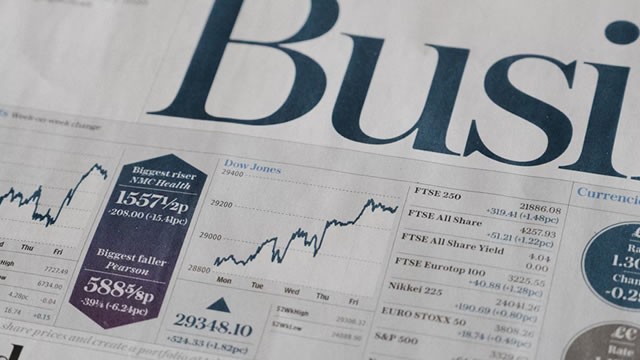Stock Market Dips: A Frustrating Start to the Weekend
The stock market opened on a sour note this morning, with U.S. indices trading lower. The tech-heavy Nasdaq Composite led the decline, dropping around 100 points, or 0.8%, at the opening bell.
The Nasdaq Composite’s Slump
The Nasdaq Composite’s decline was driven by a variety of factors. One of the primary reasons was the ongoing concerns regarding rising interest rates and inflation. The Federal Reserve’s recent hawkish stance on monetary policy has led to an increase in bond yields, making stocks less attractive compared to fixed-income investments.
Sector Performance
Technology stocks, which are heavily represented in the Nasdaq Composite, were hit particularly hard. The sector is sensitive to changes in interest rates due to its high valuation and reliance on future earnings growth. Other sectors, such as energy and financials, saw gains as investors sought out safer havens.
Impact on Individual Investors
For individual investors, the market downturn can be frustrating, especially for those who have recently entered the stock market or have a long-term investment horizon. However, it’s important to remember that market volatility is a normal part of investing, and short-term declines do not necessarily indicate a bear market.
- Consider dollar-cost averaging: This strategy involves investing a fixed amount of money at regular intervals, regardless of the market conditions. This can help mitigate the impact of market volatility and reduce the average cost of your investments.
- Stay diversified: A well-diversified portfolio can help reduce risk and protect against market downturns. Consider investing in a mix of stocks, bonds, and other asset classes.
- Focus on the long-term: Short-term market fluctuations are out of your control. Instead, focus on your long-term financial goals and maintain a disciplined investment approach.
Impact on the World
The stock market’s decline can have ripple effects on the global economy. For instance, it can lead to a decrease in consumer confidence and spending, as well as a reduction in business investment. Additionally, a declining stock market can put pressure on governments and central banks to implement stimulative measures to support economic growth.
Looking Ahead
Despite the market’s current dip, it’s important to remember that the stock market is forward-looking, and its movements are influenced by expectations for future economic conditions. As such, any short-term declines may be temporary, and the market could recover if economic data continues to improve.
In conclusion, the stock market’s decline this morning was driven by a combination of factors, including concerns regarding rising interest rates and inflation. While this can be frustrating for individual investors, it’s important to remember that market volatility is a normal part of investing and that a well-diversified portfolio and a long-term perspective can help mitigate risk. Additionally, the market’s impact on the global economy can be significant, and it will be interesting to see how governments and central banks respond to any potential economic downturns.




